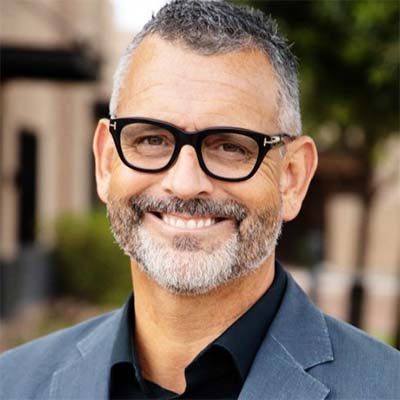With age, we inevitably must confront issues related to health, finance, and –in many cases–long-term care. While there is much work that you and your loved ones can do to prepare for these concerns, they often require the help of a legal professional.
What Is Elder Law?
As a legal field, elder law addresses the needs and issues faced by older populations. Often, people assume that elder law attorneys are only necessary for those with complex medical needs or high-value estates; however, the issues it touches on affect nearly every person.
Why It’s Important
The issues that impact seniors are highly complex, and they often vary significantly by state. They also require an understanding of the unique vulnerabilities of aging populations. Elder law attorneys provide the assistance, both legal and logistical, that help one take control of their life.
Generally, elder law touches on five main areas:
- Long-term care planning
- Estate planning
- Disability and special needs planning
- Guardianships and conservatorships
- Elder abuse
Long-term care planning
When a person can no longer take care of themselves fully, long-term care becomes necessary. And whether you opt for a transition to a senior care community or home care, the costs of care can be high. An elder law attorney can help you plan the specific type of care you want and help you navigate the various forms of financial assistance available.
For example, an attorney might help you transfer and reposition assets to help you qualify for Medicaid benefits for senior housing or a skilled nursing community. Alternatively, this attorney can help you navigate the organizational nuances of Veterans’ benefits.
Estate planning
No matter how large or small, everyone has an estate, one that cannot come with you after death. After you pass away, someone will take possession of your property and money. Estate planning is the process of designating both who receives your property and who will be tasked with ensuring the right people receive their inheritance.
If you pass away without an estate plan, anything you own will be distributed in accordance with your state’s intestacy laws. In most states, surviving spouses and children will receive an equal share; however, there is potential for ensuing legal battles over assets. To avoid this, as well as minimize estate taxes, you’ll want to create an estate plan.
An estate plan may include a last will, a durable power of attorney, an advance medical directive, or even a living trust. An experienced estate planning attorney will provide you with the necessary guidance, ensuring that these documents are prepared properly to satisfy your wishes.
Disability and special needs planning
In the event that a person becomes physically or mentally incapacitated, disability and special needs planning can help ensure that their wishes are carried out. Depending on the specific situation, one of the following legal documents may become necessary:
- A durable power of attorney: This document appoints a person (often a spouse or child) to make financial or other legal decisions on your behalf. Often a person who is diagnosed with dementia will appoint a person to act under a power of attorney in the event that their cognitive impairment prevents them from making sound decisions.
- An advance medical directive: This document outlines your wishes with regard to healthcare decisions. A common advance directive involves stating that a person does not wish to receive life support, such as artificial feeding.
- A living will: A type of advance directive, a living will details a person’s wishes regarding their medical treatment when they are no longer able to express informed consent.
In the absence of these documents, a court will likely leave these decisions up to a guardian, who might not make the decisions you would like them to make.
With regard to those with disabilities or special needs, these people are often eligible for government benefits such as Social Security. An elder law attorney can help ensure that these individuals qualify for and receive the assistance to which they are entitled.
Guardianships and conservatorships
In the event that a person has not put into effect a durable power of attorney or advance medical directive, then a person (often a family member) might petition the court to be appointed as a guardian or conservator.
Also referred to as “living probate,” a guardianship is the court-supervised process of carrying out a person’s estate. This guardian will make the daily decisions related to a person’s care, both medical and custodial. Conversely, a conservator makes decisions related to finances. In some cases, both a conservator and guardian may be the same person; in other instances, they’ll be two different people.
As with many elder law documents, the situation becomes legally murky in the absence of a court-appointed guardian or conservator.
Elder abuse
As people get older, they become more susceptible to both personal and financial abuse. The particular type of schemes and actions that harm older adults is known as elder abuse – a single or repeated act – or even a failure to act – that causes risk or harm to an older adult.
Some types of elder abuse include:
- Physical abuse: This is when an older adult experiences pain, injury, cognitive dysfunction, or distress through physical force.
- Emotional abuse: Also known as psychological abuse, emotional abuse is the most common form of mistreatment, and it often includes yelling, insults, or other verbal harassment. In some cases, well-intentioned caregivers can commit this type of abuse out of frustration.
- Financial abuse: The illegal use of an older adult’s money, benefits, possessions, or assets constitutes financial abuse. In many cases, family members often take advantage of their vulnerable loved ones.
- Neglect: Elder abuse does not always require intentional action. Failure from caregivers or loved ones to assist an older adult with activities of daily living may constitute neglect.
These types of abuse have led to a specific area of elder law that aims to maintain and, if necessary, restore an older person’s safety and financial autonomy.
How to Find a Lawyer Who Specializes in Elder Law
To find an attorney who specializes in elder law, a great place to start is with the National Academy of Elder Law Attorneys (NAELA). Founded in 1987, this non-profit association possesses a team of lawyers who are highly experienced in the nuances of elder law.
On the website, you can click on the “Find a Lawyer” button to search for attorneys in your area. If you’re unsure of exactly which services you need, that is okay. An elder law attorney can consult with you and help develop a plan for your estate and general wellbeing.
Alternatives to an Elder Law Attorney
The costs for the services discussed can be high, and not every age-related issue requires an official document from an elder law attorney. If you need help navigating the variety of government assistance programs, a social worker can be a more cost effective resource for many of these matters.
The Older Americans Act
Enacted in 1965, the Older Americans Act created the Administration on Aging, an organization that promotes the well-being of older adults by providing services and programs that help them live safely and independently in their own communities.
On their website, you can find assistance with financial programs, transportation, and even legal assistance.

Dan is Vice President, Marketing of the Alumus family of companies. A Seattle native, he earned his BA in Humanities and Political Science at Evergreen State College. He started his career as a newspaper columnist, eventually transitioning into marketing and tech writing for Microsoft and several other startups. He later launched a successful creative agency focused on branding, digital marketing, and content production in Los Angeles, where he worked for several nursing and behavioral health clients, eventually becoming the National Marketing Director for one of them.
He has taught Vipassana mindfulness meditation and MBSR and spends whatever free time he has with his son snowboarding, hiking, and camping in the mountains.
